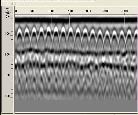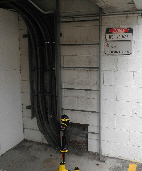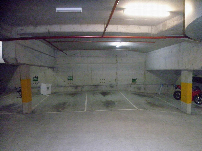Concrete scanning is becoming more of a requirement prior to coring or cutting concrete and is an important diagnostic method for concrete investigations.
How does Concrete Diagnostics scan concrete?
Concrete Diagnostics use more than one method to scan concrete, these include;
Ground Penetrating Radar (GPR) – This method is a quick and safe concrete scanning method that uses radio waves that are transmitted into the concrete. These radio waves reflect off embedded objects giving real time data displayed on the control unit and instantaneously results can be obtained on the scanned concrete. The data can also be stored if required for further processing of the scanned concrete.
Electromagnetic Field Detection (EMF) – This method scans the concrete for electromagnetic noise that might be emitted from a live electrical cable. Concrete Diagnostics EMF units can also be set up to induce a signal into a conductive cable or pipe and the concrete scanned to follow the emitted signal along the length of the cable or pipe.








